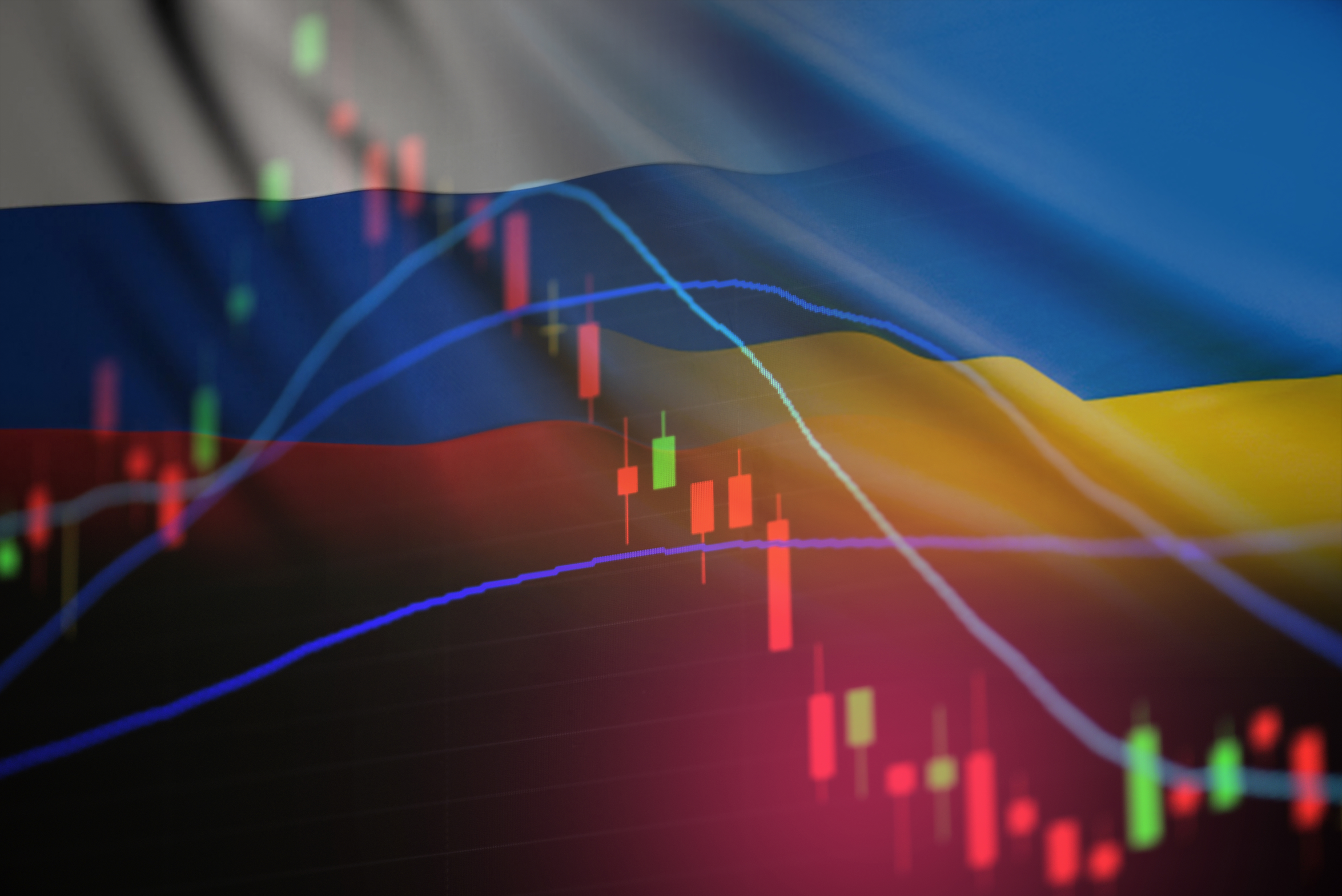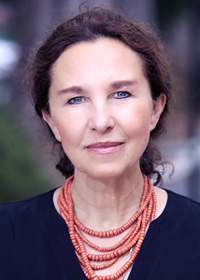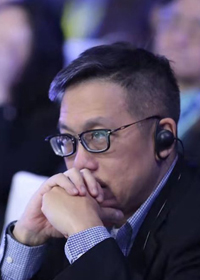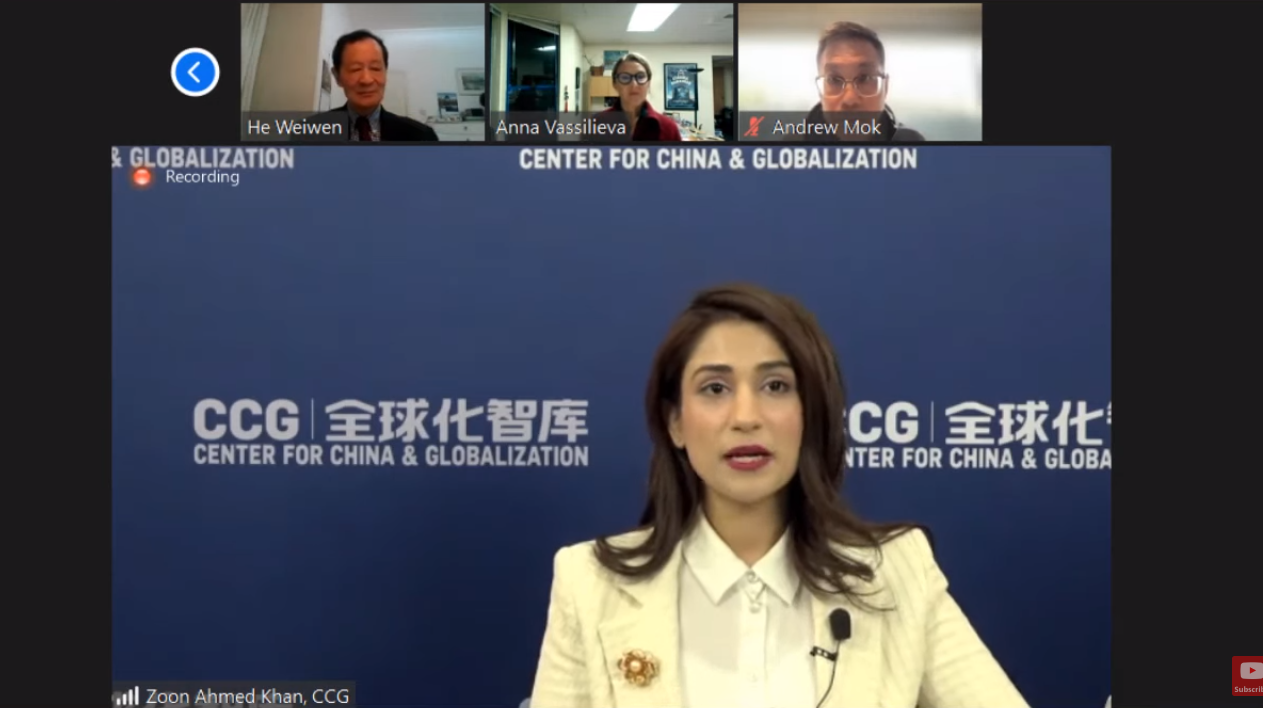Decoding the Ukraine Crisis: History, Identity and Ambition
March 25 , 2022Beijing, 25 March 2022: The Center for China and Globalization hosted the Webinar : “Decoding the Ukraine Crisis: History, Identity and Ambition”, inviting Russian expert Prof. Anna Vassilieva, Professor of Russian Studies, Middlebury Institute of International Studies. Joining as discussants were CCG Senior Fellow Prof. He Weiwen and CCG Senior Fellow Andy Mok. The event, moderated by CCG Fellow Zoon Ahmed Khan, explored the root causes and implications of the Ukraine Crisis from a cultural and historical standpoint, examined consequences of the ongoing conflict on people and politics, and explored peaceful ways forward through the lens of deeper dialogue and strategic empathy.

As we enter the fifth week of the Ukraine Crisis, diplomatic efforts have either failed of remained inconclusive, human suffering is on the rise, and the global community stands sharply divided. Sanctions imposed on Russia by the United States and NATO allies have had consequences both intended and unintended, and a position of neutrality has emerged in many geopolitically significant countries. Amidst a battle of narratives, confrontation, and economic uncertainties, the webinar tackled three imperative questions. What went wrong? What are the expected consequences? What needs to change?

In her opening remarks, Prof. Anna Vassilieva highlighted the importance of ‘strategic empathy’, strengthening understanding between cultures, and the role academics need to play . She also indicated that people need to rationally asses and analyze the events unfolding. “Russians are correct when they say poverty is not going to break us, as long as we have a strong leadership”, but the problem is that wars and suffering of others, in general, should not be the basis of strong leadership. According to her, if Russian security concerns could have been considered, maybe this war could not have happened. As a scholar, she advocates more emphasis on subjects that unite us as people- humanities, including deep study of history, cultural anthropology and sociology- because “we need to stop seeing the world in black and white, and instead see it in nuances”. Vassilieva also stressed, that “countries are like people, they want to be liked”, and the need for a spirit based on similarities to build a better world. “The protection of Russian Europeanness is very important, and the issue of utmost concern to all of us must be the possibility of a nuclear war”, she added.

He Weiwen introduced CCG’s latest report “The Impact of the Crisis in Ukraine on Global Supply Chains and China’s Economy”, released on 17 March, 2022. The report comprises four parts: The economic implications of the Ukraine Crisis in the world; prospects and future landscape of Europe; implications on China; and policy recommendations. Whereas the energy crisis is severe, the report iterates that the grain crisis is more severe, and prices may increase by over 30% as both Russia and Ukraine account for 25% the world’s wheat production. Secondly, on prospects, the report identifies that the security landscape of the world, especially Europe, will change and the root causes of the conflict need to be addressed. This includes genuine efforts to promote peace talks, and a peaceful settlement. Thirdly, the impact of China is limited so far, but secondary sanctions on China by the US remain a possibility. Lastly, on policy recommendations, the report concludes that sincere and concerted efforts need to be pursued to end the conflict.

Andy Mok, stated that currently the US is engaging Russia in three wars: the military war, the propaganda war, and the economic war. From his perspective the military war in this backdrop is the least significant. Instead, the information war, propagates two misleading narratives: The notion that the attack is unprovoked, and that the world stands with US and allies. He pointed out that China, India, Pakistan, Iran and many other nations of geopolitical significance, Russia has many more friends than Western media is letting. On the question of sanctions, Andy Mok believes, that they may have unleashed forces that may undermine US interests far more than the Ukraine conflicted was intended to solve. “This may be another strategic defeat, with far longer lasting consequences for the United States, than the conflict in Iraq, Syria and Afghanistan”, he projected.
All participants agreed that Scholars and think tanks together need to play a conducive role in addressing misinformation, and cultivating discourse conducive to empathy and friendship. In the short term ending the conflict and proactive diplomatic efforts must be the priority. Addressing the root causes of the conflict, opening avenues for cross-cultural and civilizational dialogue, as well as learning important lessons from this tragedy need to be priority areas moving forward.







